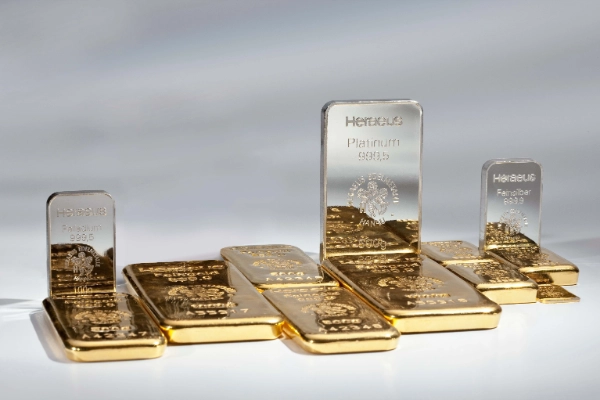Platinum: Indispensable for innovative glasses
Whether tablet display, camera lens, or vaccine ampoule: special glasses must meet complex requirements. Precious metals such as platinum ensure that innovative types of glass retain their characteristic properties during production.
High-quality glass is omnipresent in our everyday lives. TV screens must be color-neutral and thin, touch screens scratch-resistant and shatterproof. For optical glass, high transparency and homogeneity are crucial, and medical glass guarantees the safe use of medical agents. While components made of ceramic materials are sufficient for producing and processing utility glasses, the production of special glasses requires specific materials: precious metal alloys, for example, made of platinum and rhodium.

Durable and resistant
Platinum has long been indispensable in glass production. Heraeus has been providing platinum materials to the glass industry for decades. The specialists in the Global Business Unit Heraeus Precious Metals use the advantages of the precious metal. It has a very high melting point and is extremely durable and resistant.
Ceramic tools used in the production of bottle glass, for example, are attacked by molten glass. Parts can come loose, resulting in inclusions in the glass and impurities. The mechanical strength of the glass can also change. These effects are acceptable for utility glass, but not to produce special glass. This is because the glass would then be unusable for its actual purpose.
Ideal for glasses of the highest quality
Alloys of the precious metals platinum and rhodium have ideal material properties for glass production. They are highly pure and chemically resistant, have an extremely high melting point of 1840 to 1870 degrees Celsius, resist corrosion and oxidation, and do not interact with the glass melts. This means that they neither discolor the glass nor influence its chemical composition. This is a mandatory prerequisite for producing glass with the highest quality requirements.
Platinum-rhodium alloys coat ceramic components, which protects the glass from impurities. On the other hand, they are used to make glass tools such as stirrers or plungers that stir and transport the molten glass. Systems for the production of special glasses consist of a large number of components. "Heraeus offers a broad portfolio of high-temperature precious-metal-based materials for the glass industry," says Thomas Stenger, head of the Functional Materials segment at Heraeus Precious Metals. "With our products, we enable our customers to implement the latest process technologies for glass production. "

DPH innovation sets new standards
Platinum and platinum-rhodium alloys already have excellent properties for glass production. "But we are already one step further," emphasizes Dr. Matthias Wegner, Head of Innovation in the Functional Materials Division at Heraeus Precious Metals. "With so-called DPH alloys, we achieve significantly longer service life." DPH stands for "dispersion hardened". These alloys are stronger and more durable than non-dispersion hardened materials.
The latest innovation is a new generation of DPH materials with which Heraeus sets new standards. They retain their properties even at very high temperatures and are resistant to mechanical stress and wear. "Glass manufacturers benefit from these advantages," Wegner explains. "Longer maintenance cycles reduce plant downtime and repair costs. "A plus in terms of sustainability and capital commitment: Less precious metal is needed for producing DPH materials thanks to the material's excellent mechanical properties.

